18 Apr It’s Finally Here! A Chat with Javier F. Becerra About His New Online Dictionary
By María Fernanda Arámbula

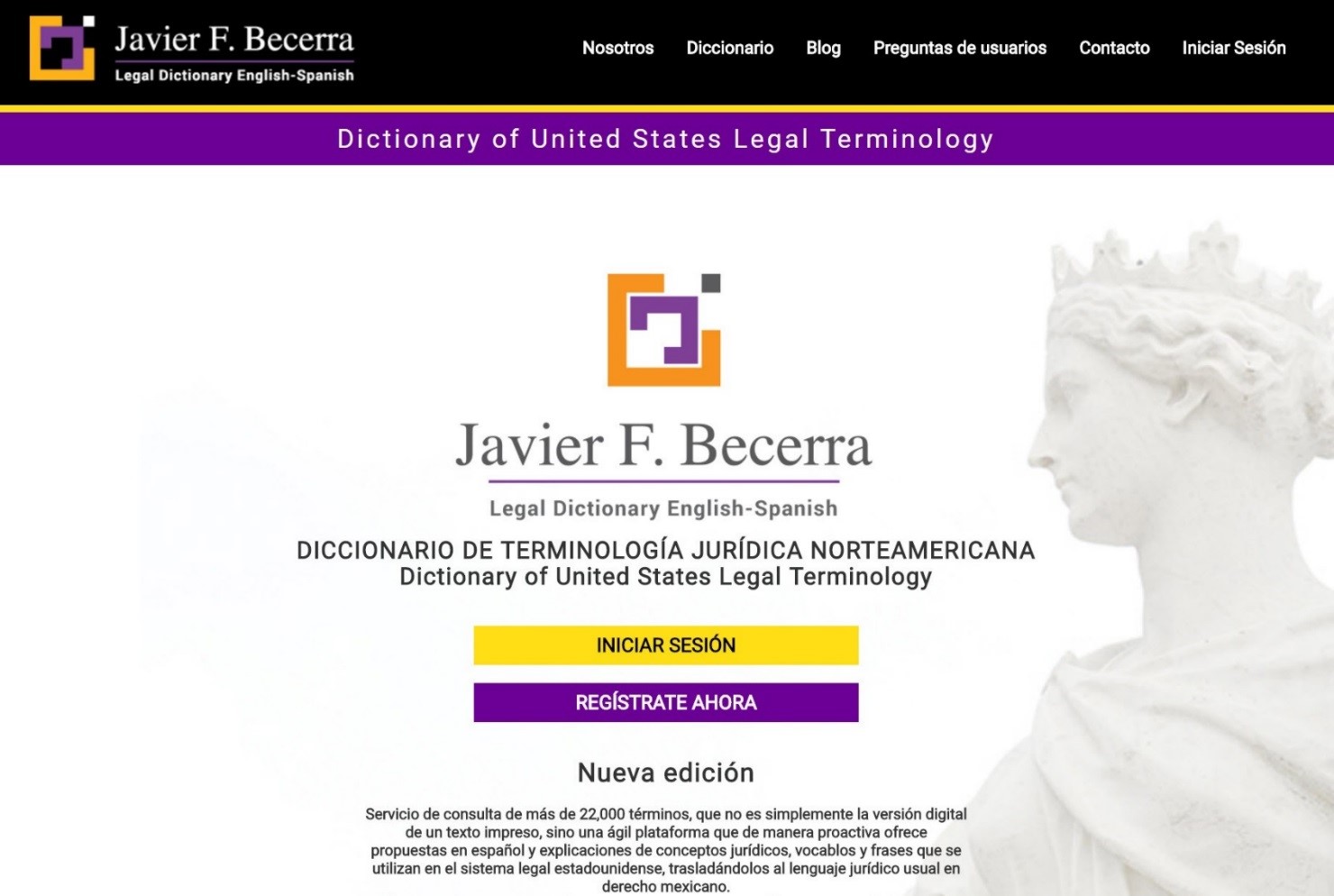
Yes, it is finally here! Javier F. Becerra’s English-Spanish Dictionary of United States Legal Terminology is now available online at diccionariojfbecerra.com. Why did the author decide to go online? When I asked him, Javier F. Becerra answered: “There were three main reasons: First, for practical purposes: one day I bumped into a former student of mine, Becky Serviansky, an interpreter, at the legal department of a major bank in downtown Mexico City and saw her carrying the two printed—and heavy— dictionaries; she told me that she never got to work without them. It was then that I realized how complicated it was to be carrying the two existing volumes from one place to another. Secondly, because technology is always one step ahead of us; new generations are no longer into printed books but more into IT, so I needed to keep up with the current technological advances. Last, but not least, the flexibility of an online dictionary that would allow me to make changes and corrections (in case of repeat terms, for example) and updating its content from time to time with new and interesting legal terms that had not been included in the printed version and that may prove to be useful for the readers.” These reasons can be clearly seen in the dictionary’s site map, as we will see below.
In the section “Nosotros” (“Who we are”), we find a brief introduction to what the site offers to visitors: over 22,000 terms set out in a versatile platform that not only provides definitions but also short explanations of the legal language commonly used in different areas in the United States legal system, and equivalent terms and concepts in Mexico’s legal system.
The platform is very practical and user friendly: just click on the section “Diccionario” (“Dictionary”), key the term or phrase you are searching for, and its equivalent immediately pops up.

You can also search the term through the index.
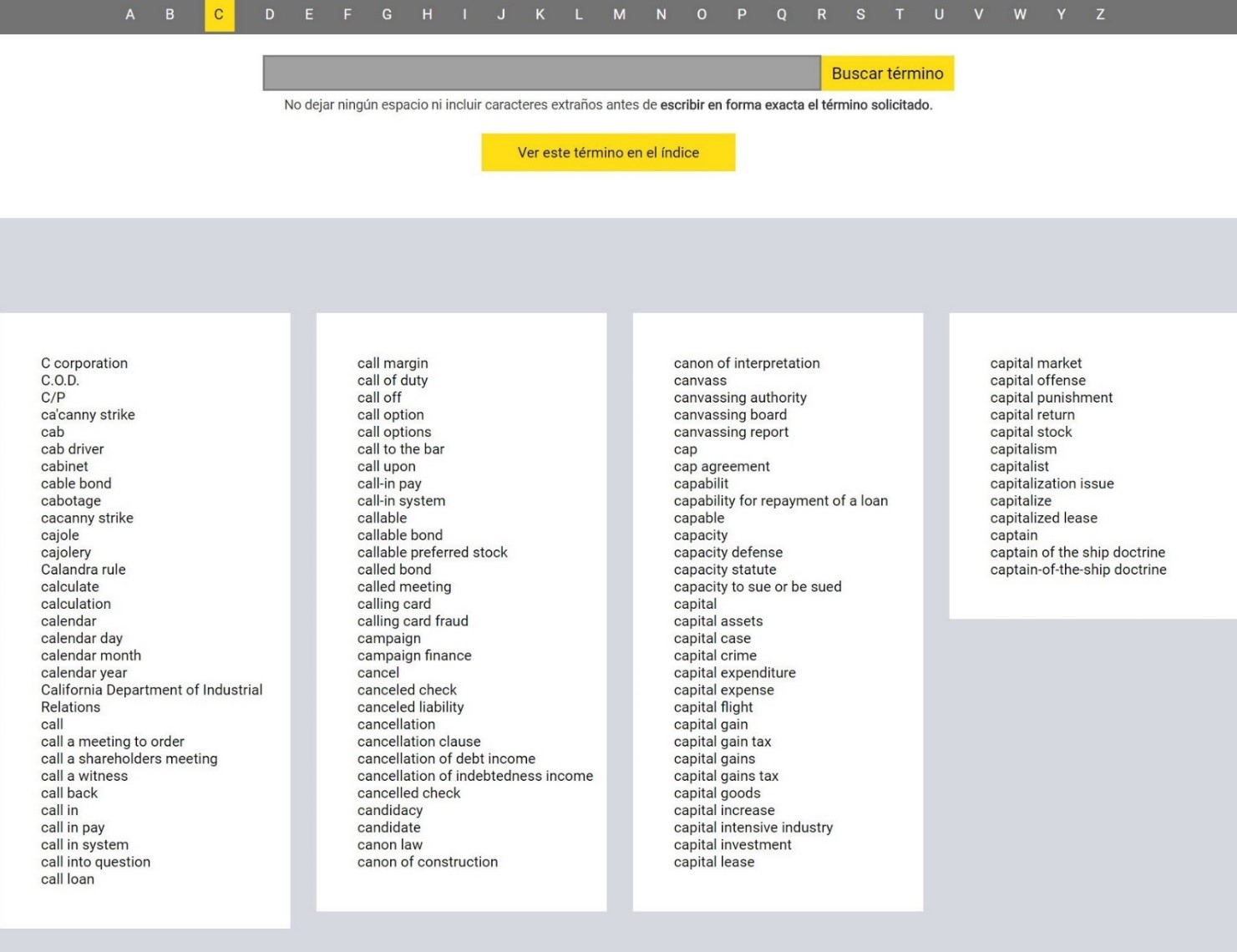
Despite the exhaustive nature of this unique work, the ever-changing nature of U.S. legal language makes this online version a very special tool. The section “Últimos Términos Agregados al Diccionario” (“Latest Terms Added to the Dictionary”) has been designed to allow Becerra to continue his research into complex legal terms and concepts that enjoy day-to-day use in the U.S., but not so in Mexico.
Becerra told me, 'I do not intend to possess the whole truth and nothing but the truth about the Mexican and the U.S. legal systems.'

Becerra told me, “I do not intend to possess the whole truth and nothing but the truth about the Mexican and the U.S. legal systems. All languages are alive and constantly evolve, and I continue to research the origin, historical background, former and current usage of terms that are not yet included in the dictionary and are uncommon to our legal tradition. Then, I put them into context, both ordinary and legal, and finally attempt to translate them into short words or phrases in Spanish, so that the end user will understand not only the translated words, but their legal meaning as well.” There is also a section on “Términos Modificados Recientemente” (“Recently Modified Terms”) to make corrections and adjustments to existing terms and phrases.

Becerra told me that “this effort has been going on as a side interest of mine and as an upshot of my tough and challenging legal practice dealing with major multinational companies and their U.S. legal counsel, ever since I started working for my law firm forty-seven years ago.” Becerra has spent all that time building up this impressive collection of terms both as a full-time bilingual attorney and also as a professor at the Escuela Libre de Derecho, a prestigious law school in Mexico City, where he has been teaching courses on legal English for more than twenty-six years now, not only to law students but also to lawyers, translators, interpreters and others interested in learning the practical aspects and complexities of the U.S. legal terminology in a workshop environment. With all that experience, the author has been able to research, contextualize, explain and translate peculiar and frequently convoluted legal terms whose meanings are extremely difficult to discern by the uninitiated, such as “cat’s paw theory of discrimination,” “grandfather clause,” “clawback agreement,” “rabbi trust,” “make-my-day statute,” “three-strikes-and-you-are-out law,” “Ponzi scheme”—only to mention a few examples.
In this new online platform, Becerra has given users a chance to interact as well. In the section “Preguntas de Usuarios” (“Questions by Users”), users are free to express their opinions tête-à-tête with the author by posing questions or stating their views on difficult legal concepts or expressions they may be dealing with, in a practically “live” two-way exchange, in fields such as family law, real estate, corporate law, contracts, labor law, financial law and assorted topics. “It is my intention to try to give an answer in two business days at the latest, except if I am travelling,” said the author.
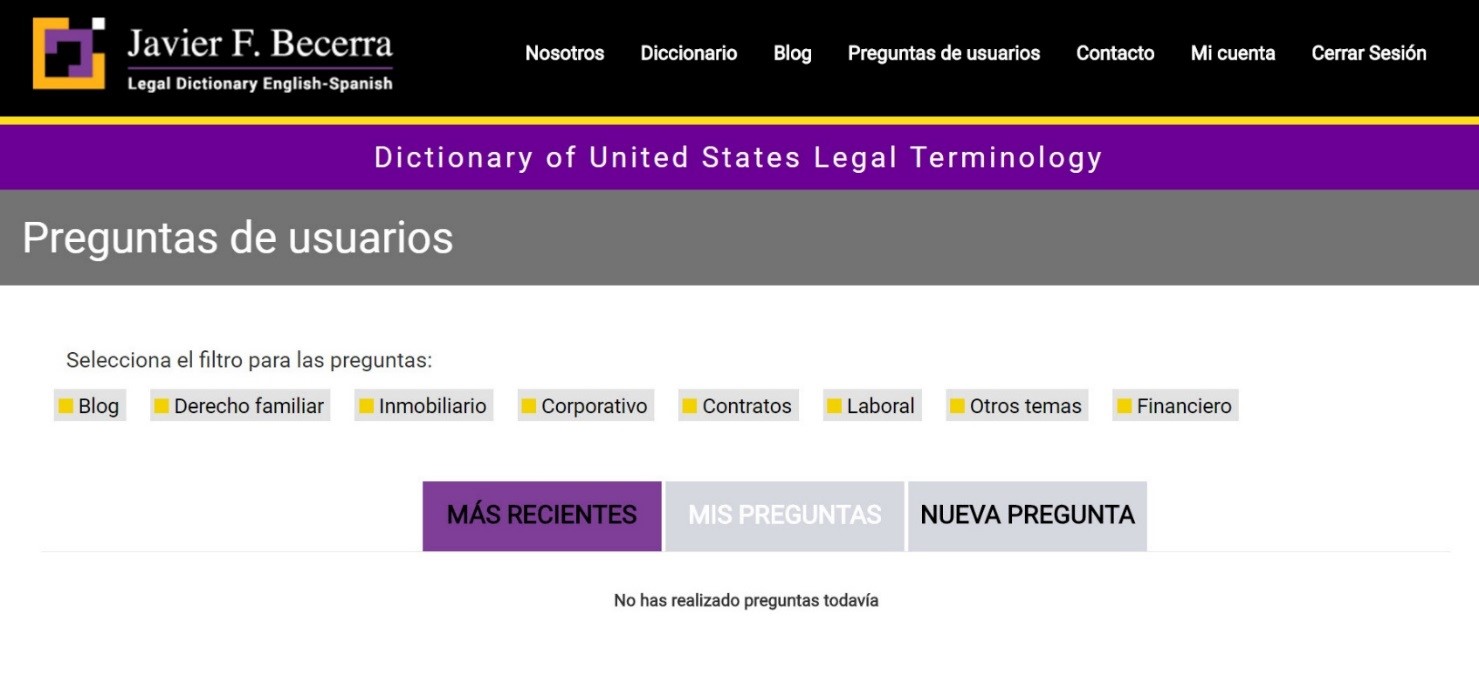
In addition, the platform contains a blog that includes different materials and documents related to the dictionary and to legal topics that may come in handy for all those users wishing to gain a deeper knowledge of certain subjects, such as the Spanish translation of an article written by Stephen M. Kahaner on the rules applicable to judicial interpreters in the U.S.
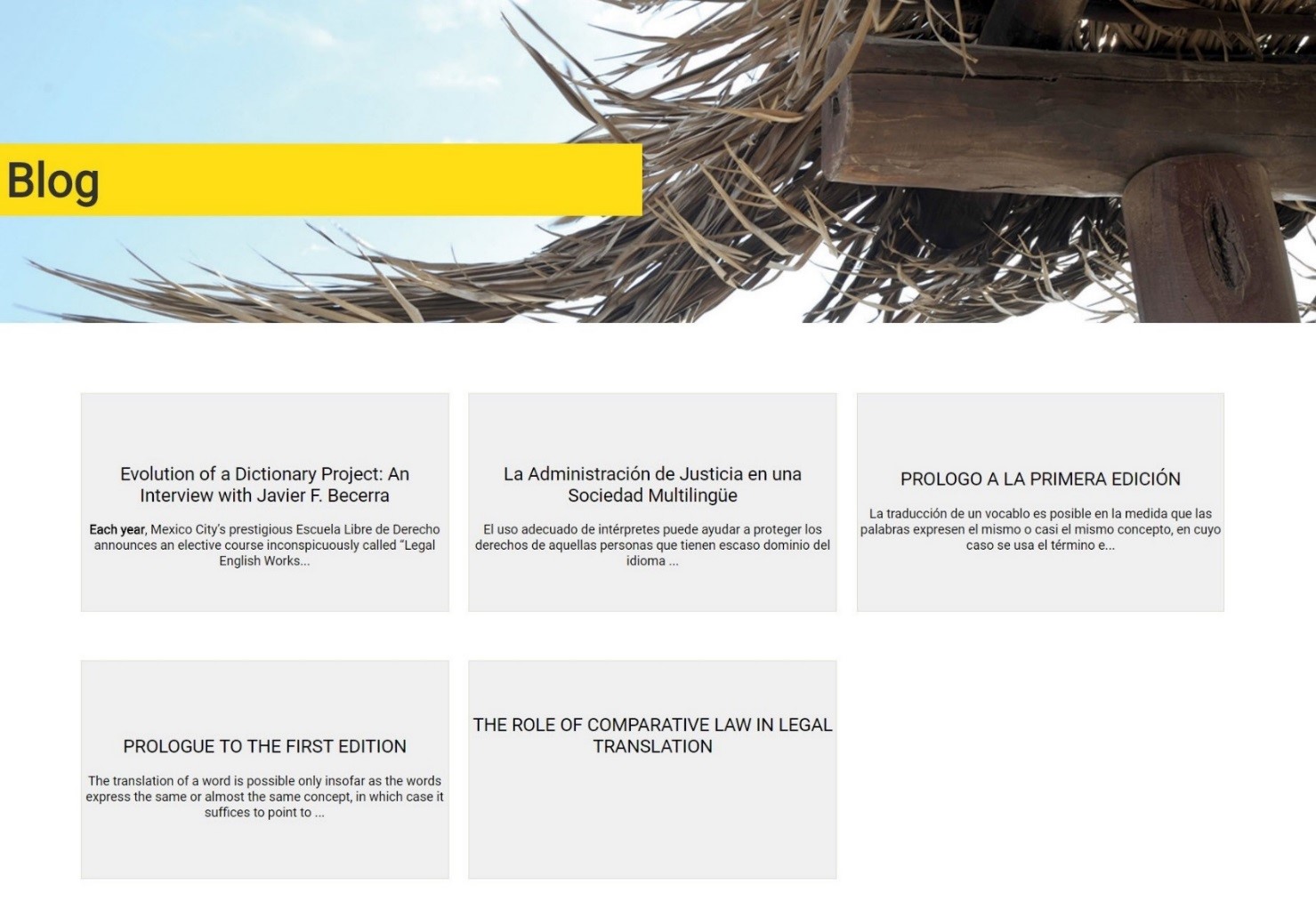
Moreover, Becerra included a section entitled “Ejercicios de Inglés Jurídico” (“Legal English Exercises”), where he offers free access to materials from his legal English workshop at the Escuela Libre de Derecho.
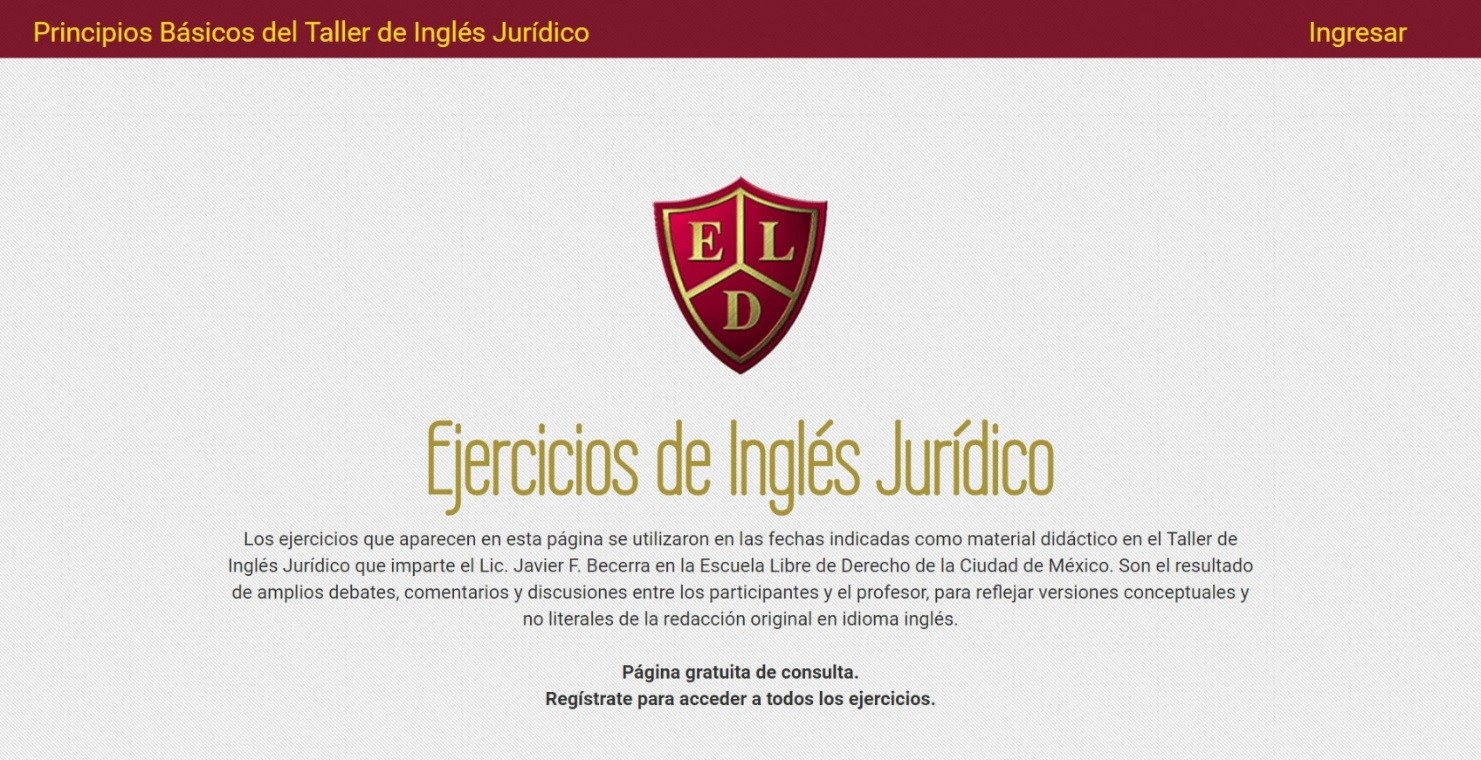
Subscriptions to the online dictionary may be purchased with a credit card for a $US10.00 monthly fee, US$50.00 six-month fee, or a US$90.00 annual fee. In addition, there is also a single corporate subscription for five to ten users at an annual fee of US$80.00 per user.
I believe that Becerra’s decision to offer this dictionary online was a wise one, as it will enable him to provide updated legal information, concepts and terms on a dynamic platform that allows for day-to-day communication between Becerra and dictionary users in order to keep legal language alive. When I asked him about his Spanish-English dictionary on Mexican legal terminology, Becerra stated enthusiastically: “I am already making plans to prepare the online version, but believe it will probably take two more years to upload and offer it to the public. First, I have to assess the results of the English-Spanish version [on U.S. legal terminology] before taking the other one on.” I, for one, believe the wait will be worth it.
[María Fernanda Arámbula was born in Mexico City and studied translation at the Instituto Superior de Intérpretes y Traductores. In 2000, she became part of Basham, Ringe y Correa—a prestigious international law firm, as a legal in-house translator under the lead of Javier F. Becerra. By 2007, she had become an expert translator certified by the Superior Court of Justice for the Federal District in both English and French, and in 2008 she completed her law degree at Universidad Nacional Autónoma de México. She has recently concluded her master’s degree in American law at the same institution. María Fernanda has been working as an expert freelance translator for almost ten years and has been teaching legal translation in the master’s degree program at Universidad Anáhuac. She has participated as a lecturer in events such as the “Transius Conference 2015” and at the VI Congreso Latinoamericano de Traducción e Interpretación 2016 held in Buenos Aires. She is currently working on her dissertation.]
